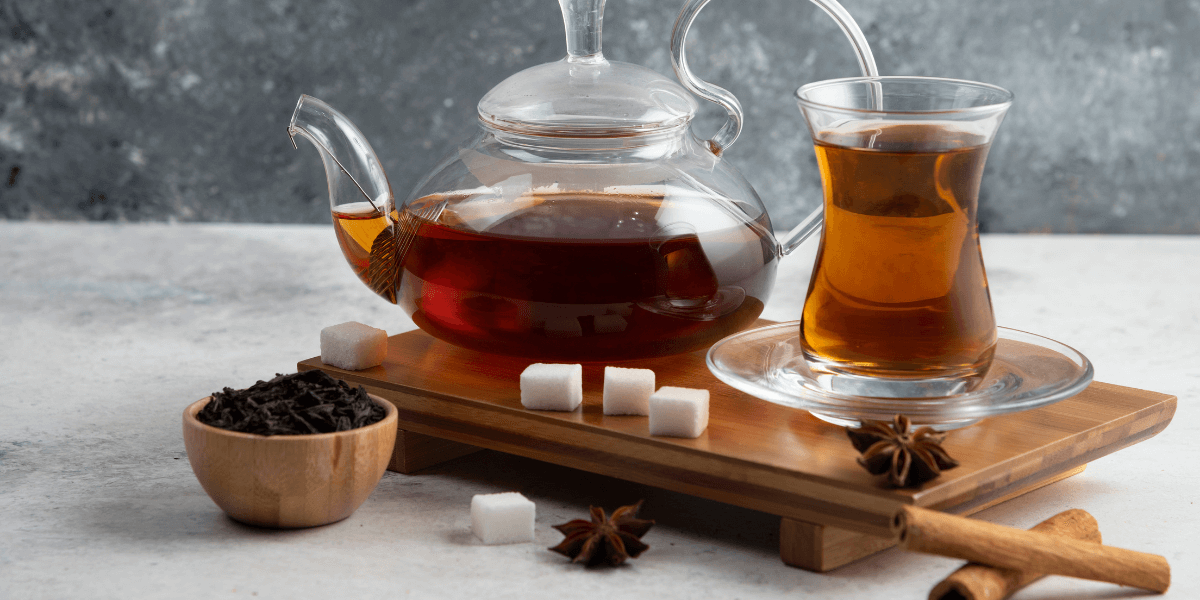Oolong tea is a traditional Chinese tea that is gaining popularity around the world due to its unique taste and health benefits. With its partially fermented leaves, oolong tea has a flavor that falls somewhere between black and green tea. But what sets oolong tea apart is its impressive nutritional profile and powerful health properties. From boosting metabolism and heart health to reducing stress levels and improving skin health, oolong tea has a lot to offer. In this article, we will explore the many health benefits of oolong tea and how you can incorporate it into your daily routine.
Introduction to Oolong Tea
What is Oolong Tea?
Oolong tea is a traditional Chinese tea that falls between green and black teas in terms of oxidation. The tea is made from the leaves of the Camellia sinensis plant, which also produces other popular types of teas such as green, black, and white tea. Oolong tea is known for its unique taste, aroma, and health benefits.
Nutritional Value of Oolong Tea
Composition of Oolong Tea
Calories and Macronutrients in Oolong Tea
Oolong tea is rich in antioxidants, polyphenols, and vitamins such as vitamin A, vitamin C, and vitamin E. It also contains minerals like calcium, manganese, and potassium. Oolong tea is a low-calorie beverage, with one cup containing only 2-3 calories. It also has a negligible amount of fat and protein.
Oolong Tea and Boosting Metabolism
How Oolong Tea Enhances Metabolic Rate
Studies on the Effects of Oolong Tea on Metabolism
Oolong tea contains caffeine and catechins that can help boost metabolism and aid in weight loss. Caffeine stimulates the central nervous system and increases energy expenditure, while catechins help to increase the body's fat oxidation. Studies have shown that drinking oolong tea regularly can lead to an increase in metabolic rate and can help with weight management.
Oolong Tea and Managing Sugar Levels
How Oolong Tea Helps in Regulating Sugar
Studies on Oolong Tea and Sugar Levels
Oolong tea could help regulate sugar levels in the body by increasing insulin sensitivity. Insulin is a hormone that helps to transport glucose from the bloodstream to the cells, where it is used for energy. When cells become insulin-resistant, glucose levels in the bloodstream can increase, leading to high blood sugar levels. Studies have shown that regular consumption of oolong tea can improve insulin sensitivity and help regulate blood sugar levels.
Benefits of Oolong Tea for Heart Health
Oolong tea, a traditional Chinese tea, is known for its various health benefits and has been cherished for centuries. One of the most significant benefits of this tea is its effect on cardiovascular health. Studies have found that oolong tea consumption can reduce the risk of heart disease by promoting heart health and preventing its various risk factors.
How Oolong Tea Promotes Heart Health
Oolong tea contains antioxidants that help lower blood pressure and cholesterol levels, which are two key risk factors for heart disease. Drinking oolong tea regularly can also improve blood circulation and prevent the formation of blood clots in the arteries, reducing the risk of stroke. Additionally, oolong tea prevents the oxidation of LDL (bad) cholesterol, which further reduces the risk of heart disease.
Studies on the Effects of Oolong Tea on Heart Health
According to research, regular consumption of oolong tea can lower the risk of hypertension, a primary cause of heart disease. A study conducted on 76,979 Japanese adults revealed that those who drank oolong tea daily had a lower risk of cardiovascular disease, including stroke, compared to those who did not drink oolong tea. Another study showed that oolong tea drinkers had lower levels of triglycerides, cholesterol, and LDL (bad) cholesterol.
Oolong Tea and Reducing Stress Levels
The hectic demands of modern life often lead to chronic stress and its harmful effects on the body. Oolong tea is a natural stress-reliever and can significantly reduce anxiety levels.
The Benefits of Oolong Tea in Reducing Stress
Oolong tea contains theanine, an amino acid that has calming effects on the body. Regular consumption of oolong tea has been known to promote relaxation and calmness, leading to stress reduction. The theanine in oolong tea also stimulates the production of alpha waves in the brain, which promote relaxation and focus.
Studies on Oolong Tea and Stress Relief
Several studies have confirmed the stress-reducing effects of oolong tea. A study conducted on 18 Chinese university students revealed that drinking oolong tea improved cognitive performance in stressful situations. Another study on 75 healthy Japanese adults found that daily consumption of oolong tea reduced stress levels and improved overall mental health.
Oolong Tea and Improving Skin Health
Oolong tea can also benefit the skin, making it an excellent addition to your skincare routine.
How Oolong Tea Contributes to Better Skin Health
Oolong tea contains antioxidants called polyphenols that combat free radicals that damage skin cells. These antioxidants promote healthy skin by preventing premature aging and reducing the risk of skin cancer. Oolong tea can also reduce inflammation and improve skin hydration, leading to healthier and more youthful-looking skin.
Studies on the Effects of Oolong Tea on Skin Health
Research has shown that oolong tea can improve skin health by reducing the risk of skin damage and promoting skin hydration. A study conducted on women in China revealed that drinking oolong tea for six months improved skin elasticity and reduced the appearance of wrinkles.
How to Incorporate Oolong Tea into Your Daily Routine
Adding oolong tea to your daily routine is easy and convenient.
Ways to Prepare Oolong Tea
Oolong tea can be prepared by steeping loose tea leaves or tea bags in hot water. The tea should be steeped for approximately three minutes to bring out the best flavor.
How Much Oolong Tea to Drink Per Day
It is recommended to consume two to three cups of oolong tea per day to achieve the full benefits.
Precautions and Side Effects of Oolong Tea Consumption
While oolong tea is generally safe to consume, it contains caffeine, which can cause side effects such as insomnia, headaches, and nervousness. Individuals with heart conditions, anxiety disorders, or caffeine sensitivity should consult their physician before consuming oolong tea.In conclusion, oolong tea is a fantastic addition to any healthy diet. With its numerous health benefits and rich flavor, it's no wonder why oolong tea has become so popular. Whether you're looking to boost your metabolism, improve heart health, or simply enjoy a delicious cup of tea, oolong tea is a great choice. So, go ahead and try incorporating oolong tea into your daily routine and reap the many benefits it has to offer.





